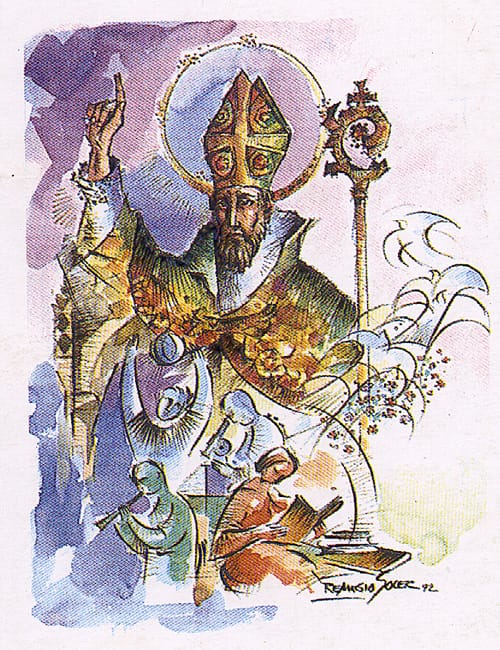Many collaborators were engaged in the process due to the fact that a writer from antiquity, such as St. Augustine (354-430), did not write in accordance with the literary norms of today. His thought on any theme, for example, is to be found in a multitude of sources making the exposition of his thought more difficult and intricate.
José Oroz Reta and José Antonio Galindo, Augustinian Recollects, directed the project. Oroz Reta, professor at the Pontifical University of Salamanca, initiated contact with scholars in various nations requesting their participation in the project. Upon the death of Oroz Reta in 1996, Antonio Galindo assumed the responsibility of moving the project forward. He edited part of the first volume and, in their totality, the second and third volumes. For several years, Galindo resided in the parish of Nuestra Señora de la Esperanza in Valencia which made it possible for him to be in close contact with the editorial, a necessary relationship for the production of a work of such extension and academic scope. Nor would the publication have been possible without the collaboration and contributions of the other members of the Institute of Augustinology, José Anoz, Javier Ruiz, and John Oldfield, Augustinian Recollects.
A most complete work on St. Augustine
Some 400 publications, books and journal articles on St. Augustine appear every year. It is very possible that within this immense production, this work might well be the most complete, not necessarily the best, but certainly that which best covers the areas of theology and philosophy. And, of course, there are other themes which would attract the attention of the genial bishop of Hippo.
There is yet another feature which is attractive in these three volumes. There is an ample selection of texts referring to the various themes and these are appropriately included and organized numerically. Thus the reader has the opportunity to enjoy reading directly the very text of Augustine. Finally, the third and final book of the collection contains an index of themes of 163 pages allowing the reader to easily find the exposition of the theme or questions of interest in any of the three volumes. In this way, the thought of St. Augustine both as theologian and poet, continues to be illuminating and relevant to the today’s man. Augustine, so much admired by Pope Benedict XVI, has been placed at the disposition of the contemporary reader in the Spanish language version of El pensamiento de san Agustín para el hombre de hoy.




